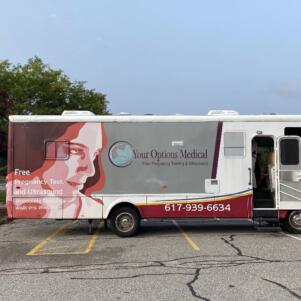The (Abortion) Empire Strikes Back — Preemptively
By Dwight Duncan | February 26, 2017, 15:54 EST

Fearing the conceivable overturning of Roe v. Wade under the Trump presidency, the abortion industry and its legislative allies have proposed a preemptive remedy in Rhode Island called the Reproductive Health Care Act of 2017. (It’s Senate Bill 274 and House Bill 5343.) Supposedly, according to the Planned Parenthood press release, “This Legislation replicates the central tenet of Roe v. Wade. The Act clearly states that the state shall not interfere with a woman’s right to prevent, commence, continue, or terminate a pregnancy before fetal viability.”
Not true. It does not replicate the central tenet of Roe, as I’ll explain presently, nor does it clearly state non-interference before fetal viability. The proposed bill states “neither the state, nor any of its agencies, or political subdivisions shall interfere with a woman’s decision to prevent, commence, continue or terminate a pregnancy provided the decision is made prior to fetal viability” (emphasis added). In other words, as long as the decision is made prior to fetal viability, the termination of pregnancy can take place at any time, even on the eve of live birth.
Now perhaps this mistake could be attributed to careless legal draftsmanship. Except that the central holding of Roe, as authoritatively interpreted by the U.S. Supreme Court in Planned Parenthood of Southeastern Pennsylvania vs. Casey 25 years ago in 1992, is that prior to fetal viability, the state can place no “undue burden” or “substantial obstacle” on a woman’s getting an abortion. This is significantly different from the proposed bill’s prohibiting any interference with a woman’s terminating her pregnancy at all. The only exceptions the proposed act makes are for the Rhode Island law on parental consent for abortion for minors (Section 23-4.7-6), and the statutory protection for conscientious objection to abortion (Section 23-17-11).
As Paul Benjamin Linton, the national expert on state abortion law and author of the authoritative book Abortion Under State Constitutions: A State-by-State Analysis (second edition 2012) has correctly noted with respect to the proposed law, it would repeal by implication all state laws and regulations “regulating abortion, such as those mandating informed consent, prohibiting partial-birth and post-viability abortions, and statutes and rules regulating abortion clinics, limiting abortion coverage for state employees, and restricting public funding of abortion.”
The proposed bill shares the “fetus counts for nothing” view of the abortion industry. It institutes a laissez-faire policy with respect to the termination of human life. For instance, its definition of “fetal viability” is “that state of gestation where the attending physician, taking into account the particular facts of the case, has determined that there is a reasonable likelihood of the fetus’ sustained survival outside the womb.” Nothing about the U.S. Supreme Court’s clarification that an unborn child may be considered viable if there is a reasonable likelihood of its sustained survival outside the womb, “with or without artificial support.” (The case is Colautti v. Franklin, 439 U.S. 379, 388 (1979) (emphasis added).) And, under the bill, if the abortion decision is made prior to viability, then the abortion can take place at any time.
And why is this extreme legislation considered necessary? The fear that Roe v. Wade could conceivably be overturned by the U.S. Supreme Court. That premise is highly unlikely, even assuming Judge Neil Gorsuch, nominated to succeed the late justice Antonin Scalia on the Supreme Court, were ready to so rule. There would still be a solid five votes in favor of reaffirming Roe. So at the very least, another Trump nominee who is solidly in favor of overturning Roe would be necessary.
And even if Roe were overturned, the subject of abortion regulation would merely be returned to the state and local level, where legislators could work out the details. Legislating abortion on demand now in Rhode Island would be preemptive overkill at the behest of the abortion industry.
Dwight Duncan is a professor of constitutional law at University of Massachusetts School of Law in Dartmouth, Massachusetts.











